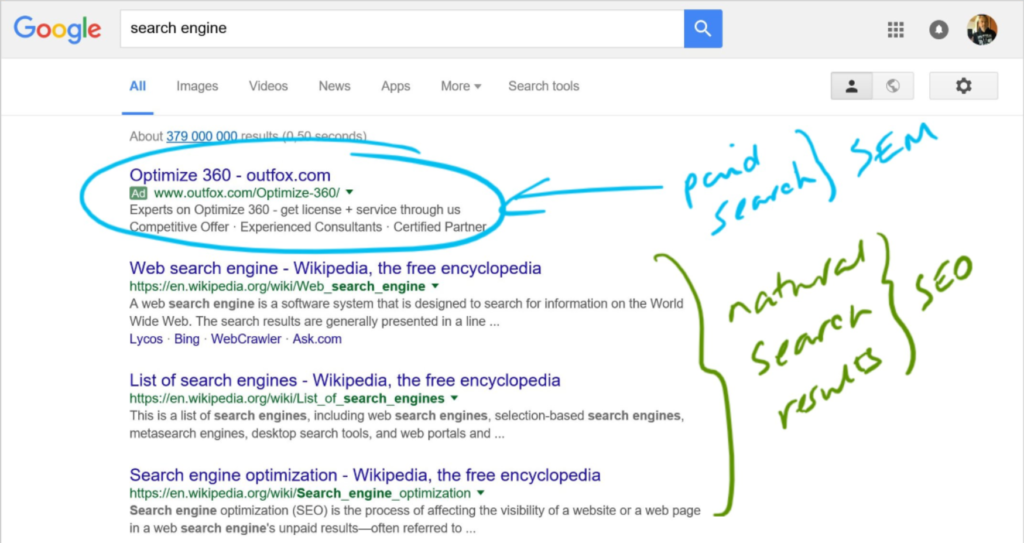The process of getting traffic from the “free,” “organic,” “editorial” or “natural” search results on search engines.Search engines are web-based tools that index content for the World Wide Web, WWW, where you search by keywords and the results are presented in Search Engine Results Page(s) - SERPs.
Source: Search Engine Land
There are other search engines, but Google obviously owns the space at least in the Western World. It is even a verb :-)
To search the Internet for information about (a person, topic, etc.)
Source: Dictionary.com
Why you need SEO
- Get your site noticed by increasing visibility through results page
- Increase traffic to your website
- Increase leads & sales

An example of SERPs - highlighting paid & organic results
My personal preference would be to click on a web site that naturally listed on SERPs than a paid advertisement.
This placement has many known and unknown aspects. A comprehensive list can be found at Google's 200 Ranking Factors: The Complete List. However the top 3 considerations according to Google themselves are
3 Key Ranking Factors in getting noticed
- Content
- Links
- RankBrain
RankBrain seems to be the new buzzword in SEO, this was a new one for me but it relates to natural search language and machine learning.
So if you want to know more about this check final the link below or you can watch this video from a Google Q&A in March that also clarifies the key factors for ranking.
So there you have it. The definition of SEO and why you need it. In future posts I will explain how you can implement SEO on your site, but this hint was here.
